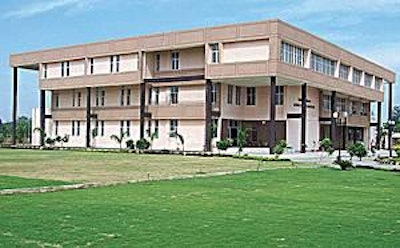
The Indian Veterinary Research Institute (IVRI) was established Pune, Maharashtra, in 1889 as the Imperial Bacteriological Laboratory. It later moved to Mukteswar, Uttarakhand, before taking up residence at its current headquarters in Izatnagar, Uttar Pradesh, in 1913 and the establishment of a number of further campuses.
Animal science research, including poultry, is the primary function of the IVR and it claims to be the oldest research institution in South East Asia. It has more than 350 faculty members engaged in research, teaching, consultancy and technology transfer.
A Poultry Research Section was established in the 1930s, and the IVRI’s Division of Avian Disease came into existence in 1976 through the amalgamation of the Poultry Pathology Section and various laboratories into the All India Coordinated Research Project on Respiratory Diseases of Poultry.
However, the IVRI does not solely focus on poultry diseases. It also carries out work in the fields of genetics, nutrition, reproduction, management, and physiology and climatology, and works across various species.
Amongst successes claimed by the institute are the development and wide use of Newcastle disease and fowl pox vaccines, and of a vaccine against bird flu following the arrival of highly pathogenic avian influenza in India in 2006.
The institute has also developed a vaccine against infectious bursal disease (IBD) and has a recombinant IBD vaccine under development.
Within the field of husbandry, the IVRI was responsible for the introduction of the high yielding broiler strain B-77 and for the introduction of Japanese quail as an alternative to poultry.
In July last year, the institute was granted additional funding to help raise productivity in the livestock and poultry sectors by 4% through improving animal health.
Alongside research, an important aspect of the IVRI’s work is education and extension projects.
Post-graduate teaching and training programmes started in 1900, and it now awards degrees to master and doctoral programmes in over 20 disciplines, and diplomas in areas including poultry husbandry and meat and meat processing technology.
For more information on the IVRI, visit: http://ivri.nic.in

















